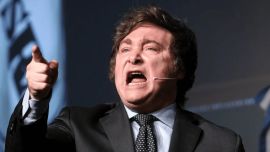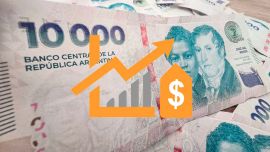On Sunday, in addition to national posts, porteños will choose 3 other categories: mayor and deputy mayor; legislators and members of the City councils.
In the case of the Legislature, 30 new legislators are elected, and as for City councils, 15 must be voted, with 7 members each.
On this occasion, the voting system is different from the PASO primaries, where Buenos Aires used a novel format: one system for national posts and another one for locals on the same day and in the same venue.
In order to elect the President, the group ballot system was used, divided into categories and for local positions, a Single Electronic Ballot was used, first implemented in 2015 in the City.
By means of a machine, citizens cast their vote, but, because in the primaries problems were detected in some polling stations, Federal Electoral Judge María Servini admitted, via a document sent to the National Electoral Court that “they may not be used in the same conditions for the election on October 22”.
She also specified that, if the system does not change “the normality and safety of the election may not be ensured”. The National Electoral Court validated the claim and the City Electoral Management Institute completed the modifications.
After the changes, on Sunday the City will vote for local positions as they do for nationwide ones, with a paper ballot. Despite being placed in different areas of the polling booth, they will both go into the same envelope and deposited into the same ballot box.
There is a runoff in the City of Buenos Aires, which has taken in place in most elections since the mayor was first elected in 1994, since the conditions to avoid that are more difficult to meet than those required nationwide.
In order to win in the first round in the City, candidates must obtain over 50 percent of the valid votes, without counting blank and invalid ones. Otherwise, the two most voted candidates will go to a second round.
The mayoral contenders are Jorge Macri (Juntos por el Cambio), Leandro Santoro (Unión por la Patria), Ramiro Marra (La Libertad Avanza) and Vanina Biasi (Frente de Izquierda).
Since the City is an autonomous district, there was no runoff only in the 2019 election, when Horacio Rodríguez Larreta prevailed in the first round.


















Comments